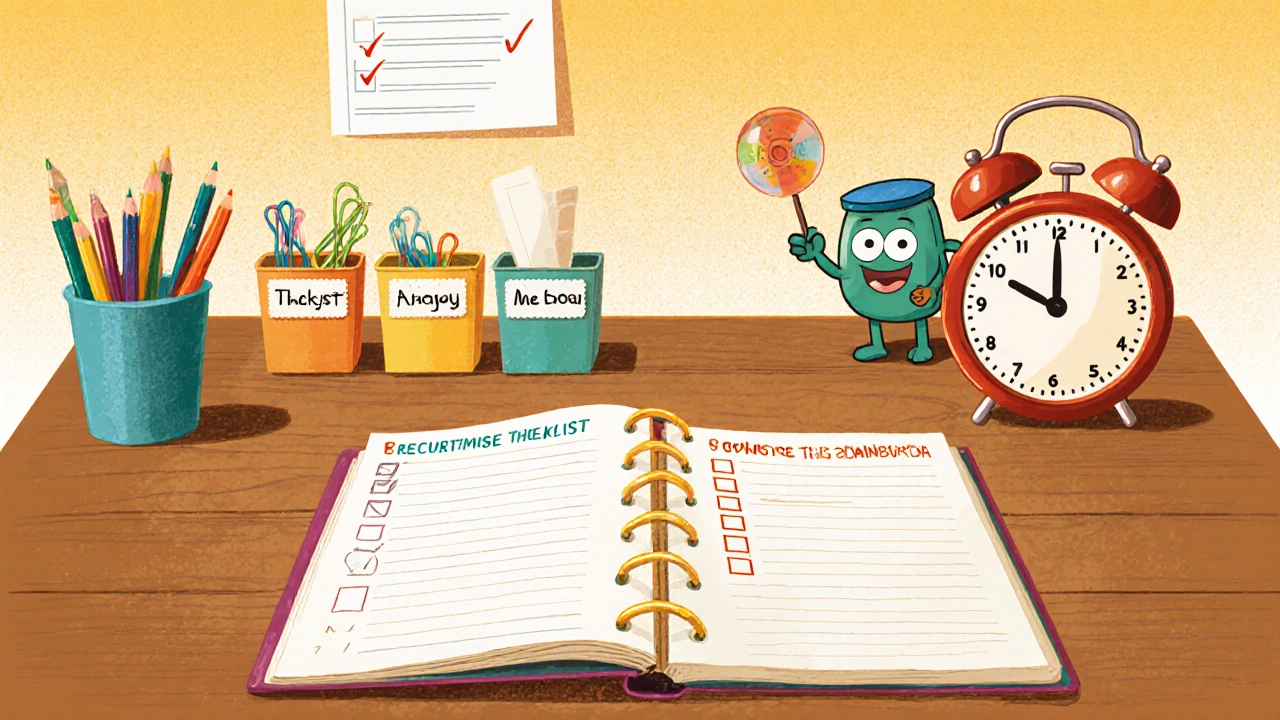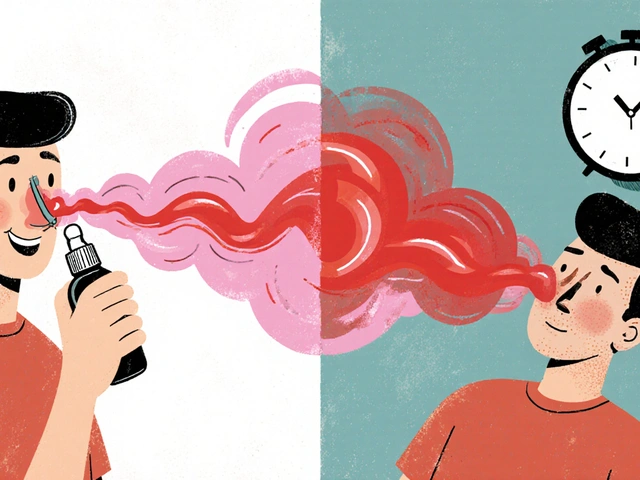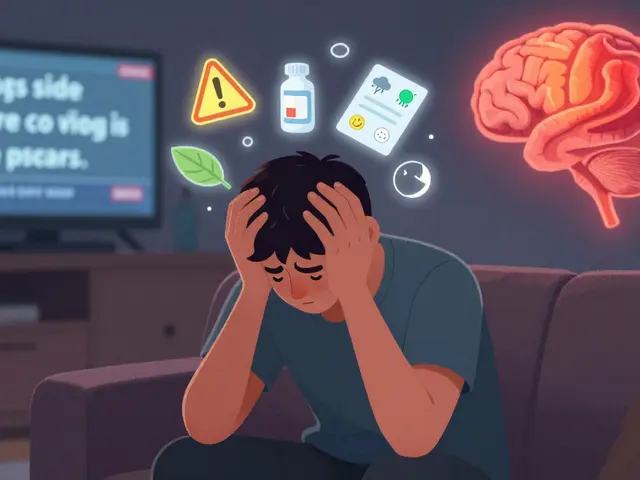ADHD Time Management Estimator
Estimate Task Time with ADHD Considerations
Enter your estimate to see realistic time
Understanding ADHD helps you see why everyday tasks like staying organized or remembering a phone number can feel like climbing a mountain. This article breaks down what ADHD is, what executive functioning means, and exactly how the two interact - plus concrete steps you can take right now.
What Is ADHD?
ADHD is a neurodevelopmental disorder marked by persistent patterns of inattention, hyperactivity, and impulsivity that interfere with daily life. The condition affects roughly 5% of children worldwide, with many continuing to experience symptoms into adulthood. Diagnosis follows criteria set out in the DSM‑5, which outlines specific behavioral thresholds over a six‑month period.
What Is Executive Functioning?
Executive Functioning refers to a set of high‑order cognitive processes that enable goal‑directed behavior, such as planning, working memory, inhibitory control, and cognitive flexibility. These skills are primarily orchestrated by the prefrontal cortex and are essential for everything from completing a work project to keeping track of a grocery list.
How ADHD Disrupts Executive Functions
People with ADHD often show deficits across the major executive domains:
- Working Memory struggles make it hard to hold information in mind while performing a task.
- Inhibitory Control challenges lead to impulsive actions, like blurting out thoughts or interrupting conversations.
- Cognitive Flexibility deficits cause difficulty shifting between tasks or adapting to new rules.
- Planning and organization suffer, resulting in missed deadlines and cluttered spaces.
- Time management deficits mean a tendency to underestimate how long tasks will take.
These overlaps aren’t coincidence. Research shows reduced activation in the Prefrontal Cortex and altered levels of the neurotransmitter Dopamine directly impact both ADHD symptoms and executive functioning.
Side‑by‑Side Comparison
| Domain | Typical ADHD Symptom | Executive Function Deficit |
|---|---|---|
| Attention | Difficulty sustaining focus on tasks | Impaired Working Memory |
| Impulsivity | Acting without thinking | Weak Inhibitory Control |
| Hyperactivity | Excessive movement or restlessness | Poor Cognitive Flexibility (difficulty staying on one task) |
| Organization | Messy workspaces, missed appointments | Planning & Organization deficits |
| Time Perception | Chronically late or “time blindness” | Time Management challenges |
Neurological Roots of the Link
The prefrontal cortex is the brain’s command center for executive tasks. In ADHD, imaging studies consistently reveal reduced cortical thickness and lower dopamine signaling in this region. Dopamine helps regulate attention and reward pathways; when its levels are off‑balance, both impulsivity and the ability to sustain mental effort suffer.
Assessment: Spotting the Overlap
Clinicians use tools like the Conners‑3 rating scale for ADHD and the Behavior Rating Inventory of Executive Function (BRIEF) to gauge executive deficits. When both scores are elevated, a combined treatment plan is usually most effective.

Evidence‑Based Strategies
Because ADHD and executive dysfunction share neural pathways, interventions that target one often help the other:
- Stimulant Medication: Improves dopamine availability, sharpening attention and working memory.
- Cognitive Behavioral Therapy (CBT): Teaches self‑monitoring skills that boost inhibitory control.
- Executive Function Coaching: Provides external structure-like visual schedules-to compensate for planning weaknesses.
- Physical activity: Aerobic exercise boosts dopamine and can reduce hyperactive impulses.
- Mindfulness practice: Enhances the ability to pause before reacting, strengthening inhibitory control.
Practical Tips for Daily Life
- Use a single, dedicated planner (digital or paper) for all appointments and to‑do items.
- Break large projects into tiny steps; check off each micro‑task to keep working memory load low.
- Set timers for each activity-5‑minute “focus bursts” followed by a short break.
- Keep a clutter‑free workspace; store supplies in labeled containers.
- Partner with an accountability buddy who can remind you of deadlines.
Frequently Asked Questions
Does every person with ADHD have executive function problems?
Most people with ADHD show at least one executive deficit, but the severity varies. Some may excel in creativity while still struggling with organization.
Can medication improve executive skills?
Stimulants increase dopamine, which can sharpen working memory and inhibitory control. However, medication works best alongside behavioral strategies.
What non‑medication approaches help?
CBT, executive coaching, structured routines, regular exercise, and mindfulness all target the brain circuits involved in executive function.
How can parents support a child’s executive development?
Use visual schedules, set clear expectations, provide frequent praise for completing steps, and teach self‑monitoring tricks like “stop‑think‑act.”
Is there a test to measure executive function?
Standardized tools like the BRIEF or the Tower of London task assess planning, organization, and problem‑solving abilities.









laura wood
20 Oct 2025 at 17:44Reading through the overview really highlighted how intertwined attention and planning can be for anyone, especially those navigating ADHD. It’s comforting to see practical tips that don’t just sound like theory but actually fit into daily routines. Offering a single planner and breaking projects into bite‑size pieces can feel less overwhelming for many. The emphasis on mindfulness and movement is a nice reminder that our brains thrive on variety.